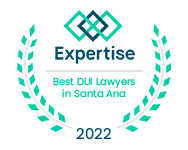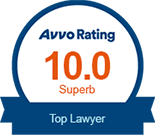
California Penal Code 1203.4
California Penal Code 1203.4 PC states that once an individual’s criminal record is expunged, they stand to obtain the benefit of not having the record available for the public’s view.
Find a complete guide about expungement lawyer Orange County through the expertise of our defense attorneys. Read about:
1. What Is An Expungement of Criminal Records
2. What Are The Requirements for An Expungement
3. What Crimes Qualify for An Expungement
4. The Benefits of An Expungement
5. What Charges Are Disqualified
6. Best Practices for an Expungement
What Are The Requirements for An Expungement
- An expungement is valid for first time criminal offenders
- The terms of probation must be completed
- All fines must be paid in full
- Victim restitution must also be paid in full
- Any court ordered schools, counseling or rehab programs must be completed
- All court attendances must be met by the applicant or the defense attorney
- No other crimes must be committed during the course of the applicant’s probation
What Crimes Qualify for Expungement
Most non-violent crimes will qualify for an expungement. Examples include theft, forgery, fraud, vandalism, burglary, transporting drugs and other crimes.
Benefits of An Expungement
The top benefits include:
- Criminal records are sealed from public view
- Past criminal offenders are able to obtain favorable employment
- Professional licenses can also be secured without issue
- Avoiding deportation for non-citizens
- Being able to stand witness to other crimes
Crimes Disqualified from Expungement
Applicants who have been convicted of the following crimes are ineligible for an expungement:
- Sex Crimes – this related to sex crimes against both adults and children.
- Homicide – including murder and manslaughter are considered to be violent crimes.
- Crimes Against Minors – especially sex crimes like sodomy, lewd acts with a minor, oral copulation and others will disbar applicants from an expungement approval.
More Information Regarding California Expungement
Refer to California’s Legislative Information for California Penal Code 189 which reads:
“(a) (1) In any case in which a defendant has fulfilled the conditions of probation for the entire period of probation, or has been discharged prior to the termination of the period of probation, or in any other case in which a court, in its discretion and the interests of justice, determines that a defendant should be granted the relief available under this section, the defendant shall, at any time after the termination of the period of probation, if he or she is not then serving a sentence for any offense, on probation for any offense, or charged with the commission of any offense, be permitted by the court to withdraw his or her plea of guilty or plea of no contest and enter a plea of not guilty; or, if he or she has been convicted after a plea of not guilty, the court shall set aside the verdict of guilty; and, in either case, the court shall thereupon dismiss the accusations or information against the defendant and except as noted below, he or she shall thereafter be released from all penalties and disabilities resulting from the offense of which he or she has been convicted, except as provided in Section 13555 of the Vehicle Code. The probationer shall be informed, in his or her probation papers, of this right and privilege and his or her right, if any, to petition for a certificate of rehabilitation and pardon. The probationer may make the application and change of plea in person or by attorney, or by the probation officer authorized in writing. However, in any subsequent prosecution of the defendant for any other offense, the prior conviction may be pleaded and proved and shall have the same effect as if probation had not been granted or the accusation or information dismissed. The order shall state, and the probationer shall be informed, that the order does not relieve him or her of the obligation to disclose the conviction in response to any direct question contained in any questionnaire or application for public office, for licensure by any state or local agency, or for contracting with the California State Lottery Commission.
(2) Dismissal of an accusation or information pursuant to this section does not permit a person to own, possess, or have in his or her custody or control any firearm or prevent his or her conviction under Chapter 2 (commencing with Section 29800) of Division 9 of Title 4 of Part 6.
(3) Dismissal of an accusation or information underlying a conviction pursuant to this section does not permit a person prohibited from holding public office as a result of that conviction to hold public office.
(4) This subdivision shall apply to all applications for relief under this section which are filed on or after November 23, 1970.
(b) Subdivision (a) of this section does not apply to any misdemeanor that is within the provisions of Section 42002.1 of the Vehicle Code, to any violation of subdivision (c) of Section 286, Section 288, subdivision (c) of Section 288a, Section 288.5, or subdivision (j) of Section 289, any felony conviction pursuant to subdivision (d) of Section 261.5, or to any infraction.
(c) (1) Except as provided in paragraph (2), subdivision (a) does not apply to a person who receives a notice to appear or is otherwise charged with a violation of an offense described in subdivisions (a) to (e), inclusive, of Section 12810 of the Vehicle Code.
(2) If a defendant who was convicted of a violation listed in paragraph (1) petitions the court, the court in its discretion and in the interests of justice, may order the relief provided pursuant to subdivision (a) to that defendant.
(d) A person who petitions for a change of plea or setting aside of a verdict under this section may be required to reimburse the court for the actual costs of services rendered, whether or not the petition is granted and the records are sealed or expunged, at a rate to be determined by the court not to exceed one hundred fifty dollars ($150), and to reimburse the county for the actual costs of services rendered, whether or not the petition is granted and the records are sealed or expunged, at a rate to be determined by the county board of supervisors not to exceed one hundred fifty dollars ($150), and to reimburse any city for the actual costs of services rendered, whether or not the petition is granted and the records are sealed or expunged, at a rate to be determined by the city council not to exceed one hundred fifty dollars ($150). Ability to make this reimbursement shall be determined by the court using the standards set forth in paragraph (2) of subdivision (g) of Section 987.8 and shall not be a prerequisite to a person’s eligibility under this section. The court may order reimbursement in any case in which the petitioner appears to have the ability to pay, without undue hardship, all or any portion of the costs for services established pursuant to this subdivision.
(e) (1) Relief shall not be granted under this section unless the prosecuting attorney has been given 15 days’ notice of the petition for relief. The probation officer shall notify the prosecuting attorney when a petition is filed, pursuant to this section.
(2) It shall be presumed that the prosecuting attorney has received notice if proof of service is filed with the court.
(f) If, after receiving notice pursuant to subdivision (e), the prosecuting attorney fails to appear and object to a petition for dismissal, the prosecuting attorney may not move to set aside or otherwise appeal the grant of that petition.
(g) Notwithstanding the above provisions or any other provision of law, the Governor shall have the right to pardon a person convicted of a violation of subdivision (c) of Section 286, Section 288, subdivision (c) of Section 288a, Section 288.5, or subdivision (j) of Section 289, if there are extraordinary circumstances.”
Best Practices for Filing a California Expungement
A lawyer will understand the filing process for expungement, deadlines required, as well as what needs to be presented to the judge, including:
- That the candidate applying has since shown signs of reform, including contributing to his or her community, that the applicant has maintained employment or other factors that may be regarded as positive.
- The defense attorney can help to prove the applicant presents no threat to society in the event that the expungement is approved.
- The applicant has not committed any other crimes since the last verdict.
Expungement Criminal Defense
The Law Offices of Randy Collins has over fifty years of combined experience helping other get back on track with the law. Call us today at (844) 285-9559 or fill out our contact form and you will receive a free professional case evaluation to help you and yours move passed your previous criminal offense. Stop letting your past affect your future. Call today to get help now.
GET DEFENSE FROM AN AWARD-WINNING TEAM OF ATTORNEYS
Over the years our firm has earned numerous awards and accolades for delivering outstanding legal representation. Some of our awards include: Admission to The National Top Trial Lawyers Association since 2014, AVVO Rating 10.0 Superb Rating, American Institute of Criminal Law Attorneys Award "10 Best Attorney Client Satisfaction" in 2018, Nationally Ranked Top 100 Under 40 in California Attorney Award in 2017, Member of the Newport Beach Chamber of Commerce since 2018, Martindale-Hubbell Accredited Law Firm, Distinguished in Orange County Metro "Top Attorneys" section, and Featured in Orange Coast Magazine in April 2010 as one of "Orange County's Best Criminal Defense Attorneys".

WHY WE'RE THE RIGHT CHOICE
-
Over 45 years of Collective Experience
-
Thousands of Cases Successfully Handled
-
Former Deputy District Attorney
-
Impressive Track Record of Results
-
Highly Respected by Peers and Clients
-
Free Initial Consultation


A Winning REcord
Always Pursuing the Best Possible Result
-
Penalty Reduced | All Other Counts Dismissed Grand Theft
-
Case Dismissed Possession of Methamphetamine
Defendant completed diversion PC 1000 for Possession of Methamphetamine, resulting in a case dismissal.
-
Case Dismissed Burglary
-
Case Dismissed Felony Domestic Violence Battery
The Defendant was arrested for Felony Domestic Violence Battery against her husband with a $50,000 bail. Several witnesses provided statements to the Orange County Police detectives. Attorney Randy Collins argued that the Defendant experienced a nervous breakdown, leading to involuntary actions. The case was dismissed.
-
Charges Dismissed Spousal Abuse







.2006191803550.png)
